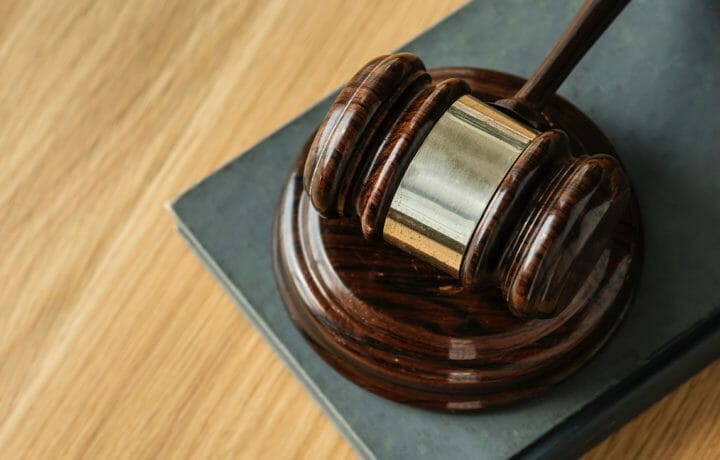DoD Directive 5220.6, “Defense Industrial Personnel Security Clearance Review Program,” (“The Directive”) applies to contractor personnel performing work for DoD and for several other federal agencies. Enclosure 3 of the Directive states:
E3.1.2. Upon referral, the DOHA [Defense Office of Hearings and Appeals] shall make a prompt determination whether to grant or continue a security clearance, issue a statement of reasons (SOR) as to why it is not clearly consistent with the national interest to do so, or take interim actions, including but not limited to:
E3 .1.2.1. Direct further investigation.
E3.1.2.2. Propound written interrogatories to the applicant or other persons with relevant information.
E3 .1.2.3. Requiring the applicant to undergo a medical evaluation by a DoD Psychiatric Consultant.
E3.1.2.4. Interviewing the applicant.
Except for the June 2017 National Security Adjudicative Guidelines at Enclosure 2, the Directive hasn’t been updated since April 1999. A lot has changed since then. Some tasks that were the responsibility of DOHA were transferred to the DoD Consolidated Adjudications Facility (CAF). Since 2012, it’s been DoD CAF’s responsibility to issue SORs, but coordination has been underway since early this year to transfer that task back to DOHA for most contractor personnel. DoD CAF appears to have sole responsibility and authority for directing further investigation, requiring the applicant to undergo a medical (psychological) evaluation, and interviewing the applicant. Since 2012, propounding written interrogatories to contractor applicants under the Directive has been done by both DOHA and DoD CAF; although, lately most seem to be done by DOHA.
Verifying Information Through Written Interrogatories
Like SORs, Interrogatories are sent to the employer’s Facility Security Officer (FSO) in a double envelope. The outer envelope contains a receipt addressed to the FSO and a sealed inner envelope. Within seven days the FSO must give the sealed inner envelope unopened to the applicant and have the applicant sign the receipt. The applicant then has 20 days to submit a sworn, notarized answer to the Interrogatories.
Prior to 2012, Interrogatories were more common than they are today. Back then DOHA had staff adjudicators, and they often used Interrogatories when it seemed possible to favorably resolve a case by asking for missing information directly from the applicant. This often obviated the need for an SOR and possibly having to submit the case to an Administrative Judge for a decision. Since then, DoD CAF has used Interrogatories sparingly and simply issues SORs when available information is not sufficient to support a favorable clearance decision.
In many cases today, the primary purpose of Interrogatories is not to give applicants an opportunity to provide missing information or additional explanation regarding the issues. It’s to get the applicant to verify the accuracy of the Subject Interview portion of the Report of Investigation (ROI), so it can be used as evidence against them. Too often, Interrogatories are just precursors to SORs.
Answering Interrogatories
Most people don’t realize that in a DOHA case, the only portions of an ROI offered as evidence to the Administrative Judge are the Subject Interview and the attachments to the ROI, such as affidavits, police records, financial records, and credit bureau reports. Without an authenticating witness, the Subject Interview portion of the ROI can easily be excluded as evidence by objecting to it. However, if the applicant has verified the accuracy of the Subject Interview portion of the ROI (with or without corrections), it’s not possible to exclude it as evidence.
According to the Interrogatories, you must either verify that the Subject Interview portion of the ROI is accurate or provide an explanation of the inaccuracies in the report. DoD CAF and DOHA say essentially the same thing about answering Interrogatories. Here’s what’s stated in DOHA Interrogatories:
You may refuse to answer these Interrogatories. However, if you do so, your application will be denied. Any current security clearance or eligibility to hold a position of trust you may now have will be revoked. Your employer will be notified of this action, which could affect your current employment and your future employability requiring access to classified information or a position of trust.
Not a SOR – But Just As Serious
Receiving Interrogatories should be regarded just as seriously as receiving an SOR. If you do a good job responding to the Interrogatories, it could result in receiving a clearance and significantly shortening the adjudicative process. Alternatively, it could provide DOHA with additional evidence to strengthen the case against granting you a clearance.
You are not limited to just answering the questions in Interrogatories. Responding to Interrogatories is an opportunity to introduce evidence of positive “Whole-Person” factors to your case file. You can attach letters of recommendation, work performance appraisals, certificates of appreciation, and other documents attesting to your good character and conduct. This type of information can influence the adjudicator to make a favorable decision without going to the next step of issuing an SOR.
Other adjudicative offices sometimes ask applicants to provide additional information and/or explanations that don’t appear in the investigative reports. They do this to avoid having the investigative agency reopen the case and re-interview the applicant, which usually takes longer. These other adjudicative offices, including other divisions of DoD CAF, use different terminology. They may call it a Request for Information, a Request for Further Information, a Letter of Interrogatory, or something similar.
As with SORs, it’s wise to get professional help in answering Interrogatories. It’s not just a clearance a stake; a denial or revocation could negatively affect your career and future career opportunities.
Copyright © 2020 Federal Clearance Assistance Service. All rights reserved.




